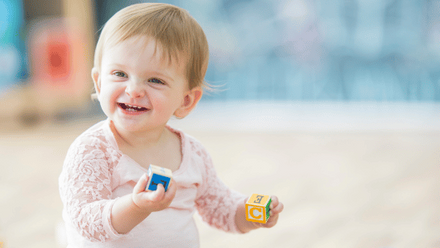Making observations meaningful: sharing formative assessments with those at home
Formative assessment is a powerful tool in early education and care, providing professionals and families with fascinating insights into a child’s learning and development. Unlike summative assessments, which evaluate learning at the end of a period of time, formative assessments are ongoing, interactive processes that help shape how we continuously respond to a child’s ever-changing learning trajectory.
In the early years, where children are rapidly developing those essential foundations for learning, formative assessments are particularly valuable in supporting individualised development, fostering engagement and ensuring that each child’s needs are met in a way that is relevant to them. But formative assessments can play an important part in the communication we maintain with parents and carers at home about their child’s busy day within setting. Observations can be uploaded to learning journals, for example, but what do we do with these? What does it tell grown-ups at home?
In this article, we will look at what formative assessments involve for professionals and how we can maximise their use within the home learning environment too.
Key characteristics of formative assessments
Formative assessments are:
- ongoing
- used to constantly inform practice and planning to meet the needs of the individual child
- comprise of observations of play and interactions in the moment, including ‘informal’ assessments of developing knowledge
- establish a ‘genuine picture’ of the child’s capabilities in an organic environment.
“On-going formative assessment is at the heart of effective early years practice. It involves observation of children as a part of all activity, which is most often held in the mind of the practitioner but may sometimes be documented, using this rich information to understand how a child is developing, learning and growing, and then planning the next steps for the adults in supporting and extending the learning.” Birth to Five Matters
Ways to engage parents and carers in formative assessments
We know that formative assessments can be beneficial to professionals working directly with children to inform their planning for engaging and enriching activities in an environment that enables children to thrive with independence and confidence. But what impact does this have on the home learning environment?
Communicating with parents and carers to establish a genuine relationship with family helps to establish a strong home learning environment, which is proven to be the single biggest factor impacting early learning development and social-emotional development. The home learning environment is an incredible asset for promoting consistent support and maximising children’s potential in all areas of their life.
Share in an accessible way
Formative assessments can take all sorts of forms, so get creative! Ongoing observations in the moment allow you to share the special interactions with parents and carers at home. Not only does this allow you to impart your own observations, but also to engage parents and carers in how these behaviours might manifest at home.
- This could be a post in an online journal highlighting the activity and what made the observation significant, such as a child using a new word or interacting in a way that shows an emotional advancement or developmental outcomes that meet current targets.
- This could also be in handover conversations where an interaction is relayed in greater detail. Make sure the significance of the interaction is acknowledged by highlighting what has been learnt or developed on.
- Sharing samples of children’s play is also a fantastic way to share observation and assessment with home. Whether it’s a material such as process-based artwork or a photo of a creation through play, sharing specific examples of play within interactions can also help parents and carers to establish a better understanding of what it means to pay attention to the details of play as a language of development too.
Make it relevant
As with all communication, we retain more when it’s relevant and purposeful! Early education and care professionals are exposed to a wide range of children, each with their own unique needs and interests to support. But, for parents and carers who are not within an educational environment, ensuring the communication we have is relevant and accessible is important to making sure they can use the information in the home learning environment.
- Avoid using jargon when talking about developmental goals
- If talking with parents and carers to convey observations, try to support the same interaction with a written account too. Sometimes, handovers can be a barrage of information at the end of a busy day!
- Ask for their insight. Parents and carers are the experts in their children so let’s encourage that participation to make the conversation relevant to what they also see on a daily basis.
Support for continued interaction
Formative assessments are an ongoing practice that aim to support children’s development by continually assessing their engagement as well as assessing our practice to ensure it meets the child’s development.
- Share activities home that can be used to develop on the assessed interaction, such as developing key language around an interest or sharing some songs that are used at setting.
- Ask for contributions from those at home – are there additional observations of their own that they would like to share? How might these feed into practice in setting?
Formative assessments offer a dynamic and responsive approach to understanding and supporting young children’s learning, and creating genuine opportunities to plan accurately for their developmental needs. But assessments are not only a tool for practice within setting. Sharing these insights with those at home can contribute towards a positive culture that values parent and carer insight as partners to a child’s learning. As early education continues to evolve and grow, formative assessments are, and continue to be, an essential tool in nurturing a child’s early years.






